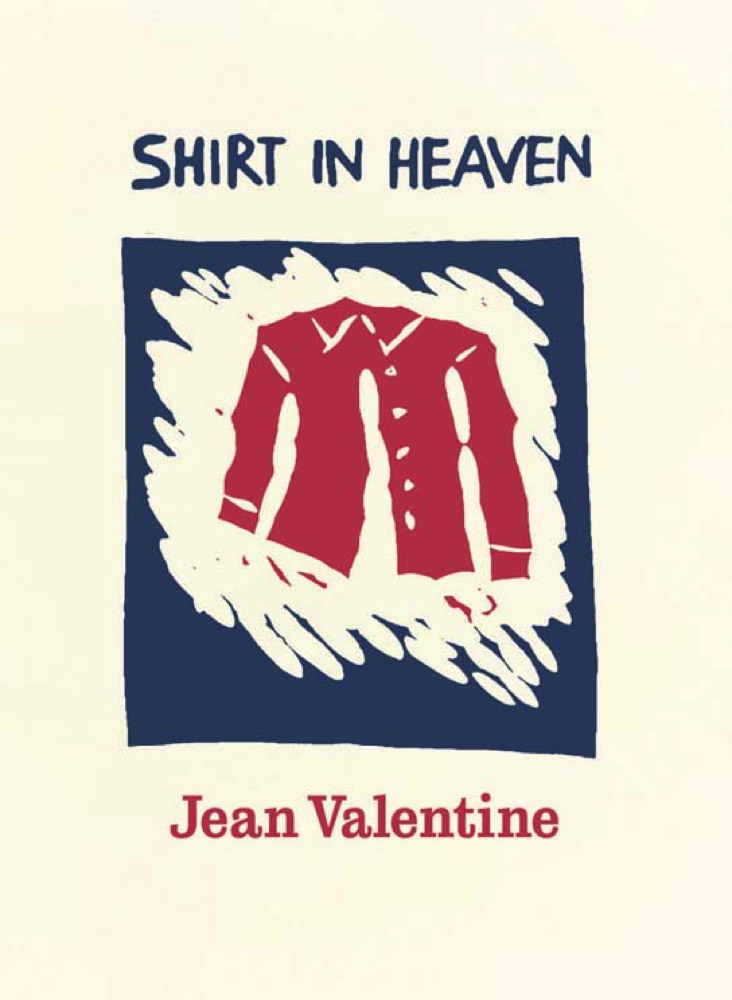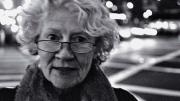Have you ever been to AWP?” Jean Valentine ’56, RI ’68, asks, almost out of the blue. “Oh, it’s wonderful!” This comes toward the end of an interview about the peaks and valleys of a literary career. Hers encompasses 13 books of poetry—the first, Dream Barker, won the Yale Younger Poets prize in 1965; the most recent, Shirt in Heaven, appeared in 2015 to delighted reviews—and numerous awards, as well as 30 years of teaching. But at the end of the hour, the 82-year-old poet hits upon the happy subject of the annual conference and book fair for the Association of Writers and Writing Programs, an event that draws more than 12,000 participants. “You go there,” she says, “and you have a sense of being ‘among,’ of being in a nation of hope.”
Valentine knows the hunger for literary companions. “To have someone, fellow writers, encouraging you, understanding you, that can be like air to breathe,” she says. As a young woman aspiring to poetry in the early 1950s, she had few models. From childhood onward, there were important teachers: Radcliffe office hours with poet and professor William Alfred were a turning point, and another Harvard professor, Edwin Honig, gave her “permission,” she says, to write from her dreams, which became an abiding, defining characteristic of her poetry. But when it came to women mentors, the landscape was sparse.

Radcliffe and Harvard classrooms had gone coed only a decade before she arrived, and it would be another decade and a half before women were allowed into Lamont Library, with its fifth-floor poetry collection and its archive of recorded readings. But the campus did offer Valentine a critically important female guiding light: poet Adrienne Rich ’51, Litt.D. ’90. Valentine tells a story about how, when she was an 18-year-old newcomer to Cambridge, an older man said hello to her on Garden Street, and as they talked, he asked her if she’d ever heard of Rich, who was on her way to becoming a towering figure in American letters. Valentine hadn’t, and the discovery was world-altering. “Someone I could imagine in my shoes,” Valentine says. “Someone my age, and in the same place. Just, that it could be done.”
Rich wasn’t the only female poetic contemporary, but “there weren’t very many of us,” Valentine says. And some of the best and most famous in those early days of Valentine’s career—Virginia Woolf, Sylvia Plath, later Anne Sexton—offered worrisome examples. Others whose lives didn’t end in suicide were heavy drinkers or depressives. Concerned about what she feared might be poetry’s “dark force,” Valentine sought out a therapist in her late thirties and asked him if she should stop writing poetry. He told her no—that in fact poetry perhaps kept those writers alive longer than they might otherwise have lived. He told Valentine to write every day, including Christmas. And for the most part, she has.
Before Dream Barker, Valentine had never published a single poem, and she’d worked for several lonely years, as a young wife and mother isolated from other writers, to produce the manuscript. When it won the Yale prize, Adrienne Rich (who herself had won the award as a Radcliffe senior) got in touch. That letter of congratulation opened a correspondence and a close friendship that lasted until Rich’s death in 2012. For most of that time, the women were also neighbors, living a few blocks from each other on the Upper West Side of New York. They read each other’s poems and consulted on work in progress; they saw each other through divorces and depression and child-rearing, and into old age. “Adrienne and I have certainly lived to see each other happy,” Valentine concluded in a 2006 essay in the Virginia Quarterly Review.
Oceanic and dreamlike, Valentine’s poems offer glimpses of the personal and political, the here and now, but frequently inhabit more ambiguous, liminal territory: the unseen and fragmentary, the invisible, the unconscious, the mysterious and almost wild. The first poem in Dream Barker, “First Love,” begins this way: “How deep we met in the sea, my love, / My double, my Siamese heart, my whiskery, / Fish-belly, glue-eyed prince, my dearest black nudge.” Her poetry isn’t narrative or confessional, though there is intimacy in the silences and in the ever-present “you.” Reviewing Shirt in Heaven—an elegiac volume that addresses the ghosts of lost friends and loved ones (including Rich) and recounts her father’s shattering trauma after World War II—poet Ann van Buren wrote: “At once shadowy and pelagic, the phrases in the book move like air across water. Valentine’s is an invisible natural force so powerful that it conjures the feeling of having been part of us all along.” Asked how her poetry has changed over the years, Valentine says, “I think that what changes is your life, and you’re writing out of a changed life.”
Valentine continues to seek out the counsel and companionship of fellow poets, especially women. These days she takes part in a writers’ group near her home in New York, and she relies on her friend, the poet Jane Mead, as a reader and adviser. “How do I know when a poem is finished? I know when my friend says so,” Valentine explains. “Because when I’m in it, I’m just in it.”
Listen to Jean Valentine read her poetry below:









